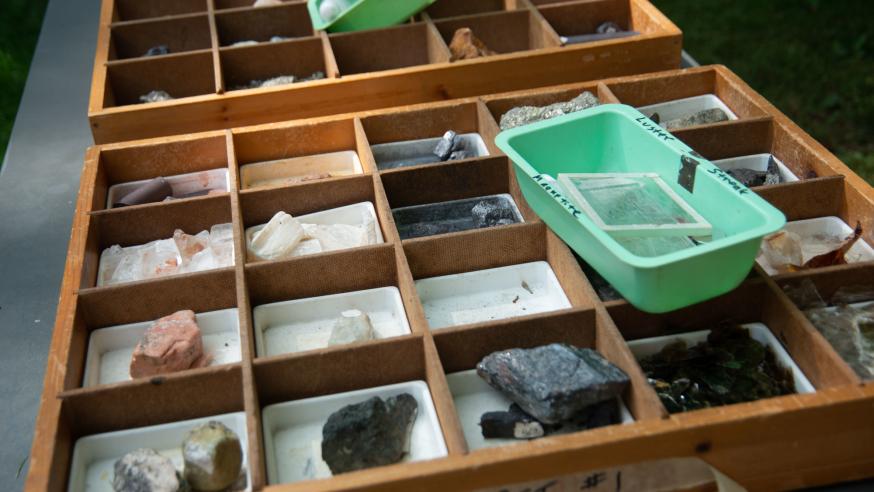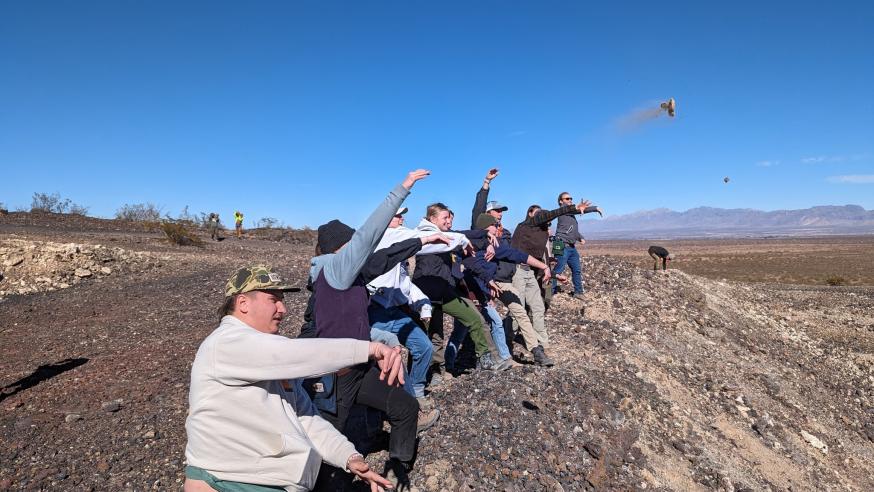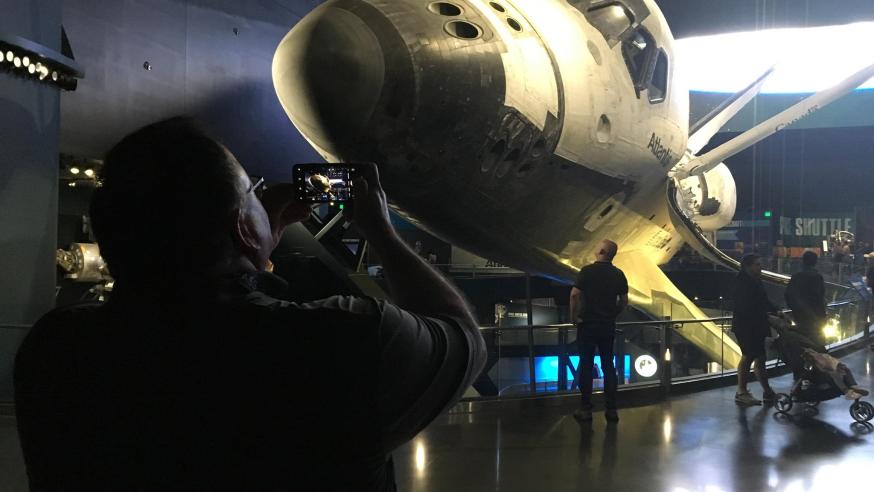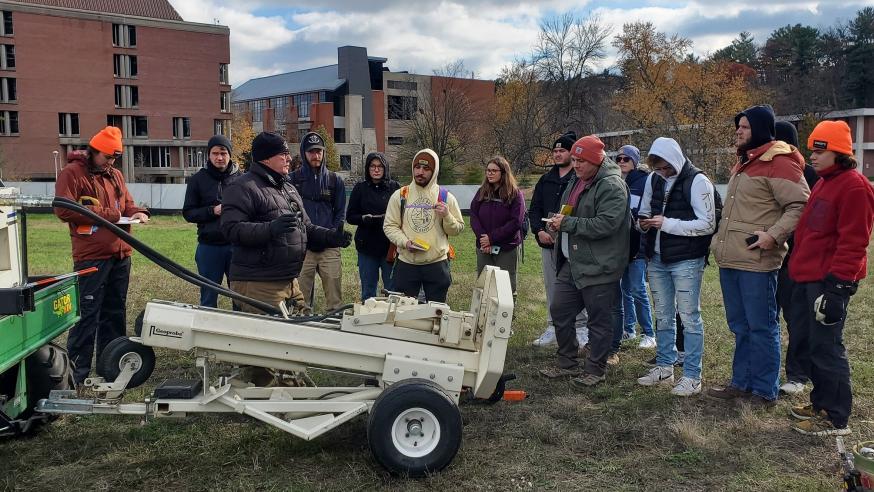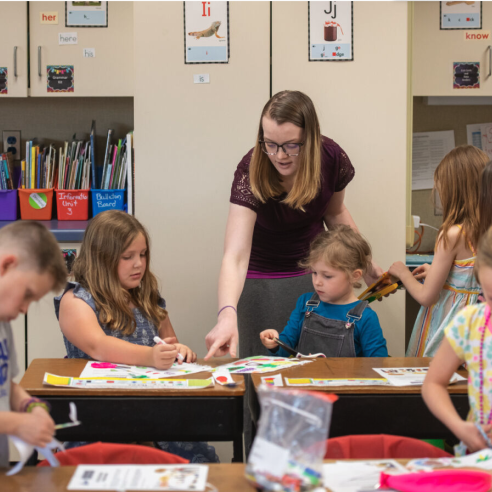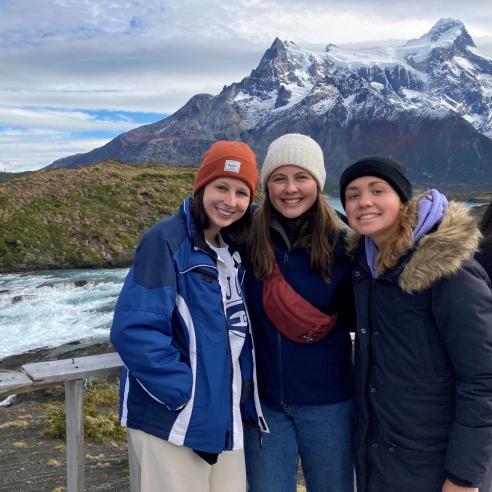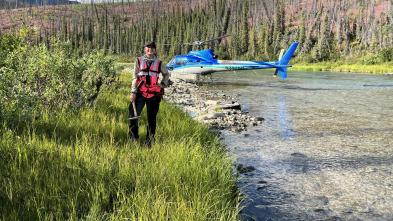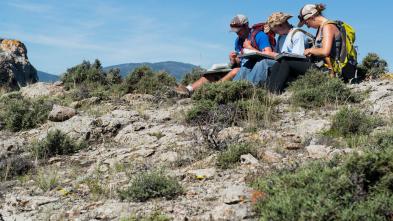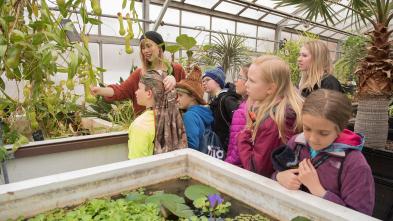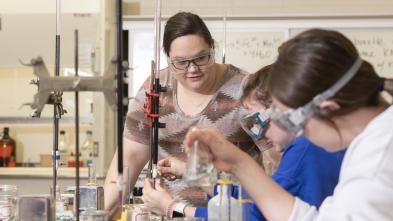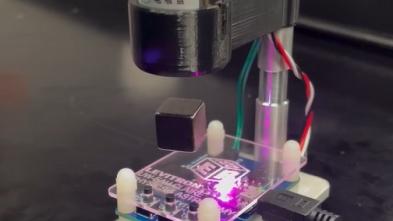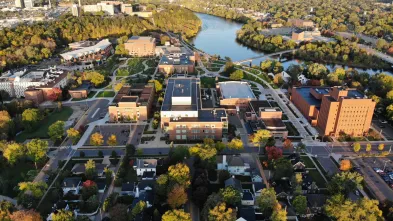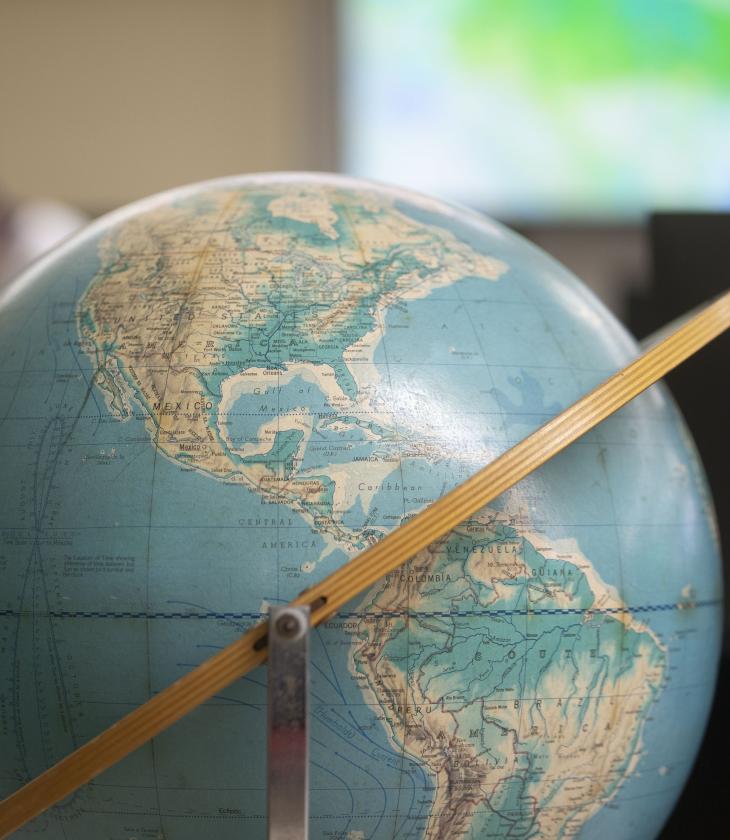
Teaching - Science, Earth/Space Science Emphasis
Earn your license to teach any science class to grades 4-12, with in-depth and specialized knowledge of teaching earth/space science material.
Combine Your Love for Earth Science with Teaching
Start your journey toward becoming a science teacher with a bachelor's degree in teaching - science, earth/space science emphasis from the University of Wisconsin-Eau Claire. Rooted in research, experiential learning, and field study, our program will certify you to teach any science course, especially earth and space science, to grades 4-12. Graduates of the program leave with a broad-based understanding of science, with specialized, in-depth knowledge of geology, oceanography, astronomy, and meteorology.
Throughout the major, you'll gain the knowledge, tools, and techniques needed to develop curious, successful students. The opportunity to assist teachers in their classrooms throughout your four years — as well as student teach for a full semester — will help you to build your leadership skills, identify your preferred teaching style, and discover how to best meet the needs of your learners.
You'll also get firsthand, real-world experience in the field of geology. Field-based courses may take you to the Black Hills and Badlands in South Dakota, the Upper Peninsula of Michigan or to the 230 acres of natural area right on campus. Alumni and current students cite the emphasis on fieldwork as the biggest advantage to this program over others — and you'll be doing it from day one.
With one of the most highly regarded education programs in the region, UW-Eau Claire produces new teachers that school districts actively seek. Our teaching - science, earth/space science emphasis grads go on to inspire the STEM leaders of tomorrow, making a positive impact wherever they go.
Program Details
Licensure Information
Completion of teacher preparation programs at UW-Eau Claire meets licensure requirements in Wisconsin. Our programs may not meet requirements in other states. It is very important that individuals seeking licensure in another state obtain the most recent certification/licensure information directly from the state in which they seek employment. Find contact information on each state licensure office here.
Licensure requirements can change at any time. UW-Eau Claire’s Teacher Education Program Office ensures that our programs meet the requirements for licensure in Wisconsin. If you seek licensure in another state, be aware that their requirements could change at any time.
The United States Department of Education requires institutions to disclose information for programs leading to professional certification or licensure concerning whether each program meets state educational requirements for initial licensure or certification. Please note:
- Obtaining a Wisconsin Teaching License PRIOR to applying for a teaching license in another state is usually helpful and strongly recommended.
- "Meets requirements" means that a student is eligible for a license with stipulations, typically for 1-3 years, in that state. The stipulations are likely to be specific testing requirements and/or competency through a course or examination. In some instances, additional stipulations might be added.
- Licensure grade levels vary from state to state. Students who are eligible for a specific grade range in Wisconsin may be licensed for a narrower grade range in another state. Each state determines grade ranges for licensing differently.
- State licensure requirements may change at any time. Licensure questions should be referred to the Teacher Education Program Office (tep@uwec.edu).
The requirements of this program meet requirements in the following states or territories:
Alabama, Arizona, Arkansas, California, Colorado, Connecticut, Florida, Hawaii, Idaho, Illinois, Indiana, Iowa, Louisiana, Maine, Maryland, Michigan, Minnesota, Mississippi, Missouri, Nevada, North Carolina, North Dakota, Oklahoma, Oregon, Rhode Island, South Carolina, Tennessee, Texas, Utah, Vermont, Virginia, West Virginia, Wisconsin, Wyoming, American Samoa
The requirements of this program do not meet licensure in the following states or territories:
Alaska, Delaware, Georgia, Kansas, Kentucky, Massachusetts, Montana, Nebraska, New Hampshire, New Jersey, New Mexico, New York, Ohio, Pennsylvania, South Dakota, Washington, Washington, D.C., Guam, Northern Mariana Islands, Puerto Rico, U.S. Virgin Islands
Blugold Stories
Justthe
facts
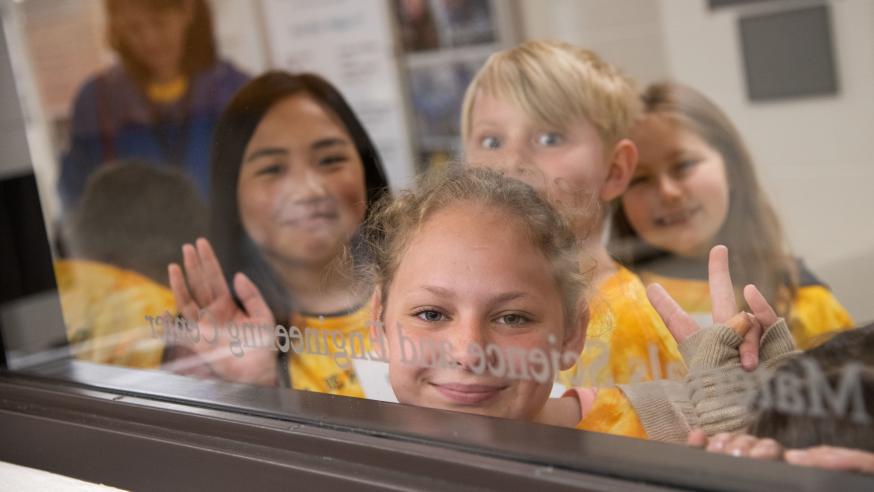
Where can the teaching - science, earth/space science emphasis program lead me after graduation?
Graduates of the teaching - science, earth/space science emphasis bachelor's degree leave well-prepared to inspire, motivate and educate the next generation. Upon completion of the program, you will be certified to teach any science course in grades 4-12 in a regular education setting, including biology, physics, chemistry and general science. You will also have special expertise and in-depth knowledge of earth science, space science, geology, oceanography, astronomy, and meteorology.
With a teaching - science, earth/space science emphasis bachelor's degree, you will become a confident instructor with the tools to teach science to a variety of ages. Through observations, teacher assisting and a full semester of student teaching in your own classroom, you'll work toward building your resume — and your skillset. Alongside geology experts and exceptional teachers, you'll learn best practices in leading a successful classroom, while making valuable professional connections.
Here are a few courses in Teaching - Science, Earth/Space Science Emphasis at UW-Eau Claire.
GEOL 106
Earth Science
Introduction to basic earth science concepts. Includes study of earth interior and surface processes, earth materials, earth history, earth resources, atmospheric composition and processes, and aspects of the solar system.
GEOL 312
Mineralogy and Petrology I
Study of minerals and rocks with an emphasis on common rocks in field settings, hand sample identification, and description of common rocks and minerals. Origin of rocks and minerals and interpretation of processes is stressed.
GEOL 301
Earth Resources and Sustainability
Origin, distribution, use, misuse, and conservation of minerals, water, soil, and fuels. Alternative resources and lifestyles for the future are evaluated.
Get More Info
Sign up to receive additional information about our campus.
